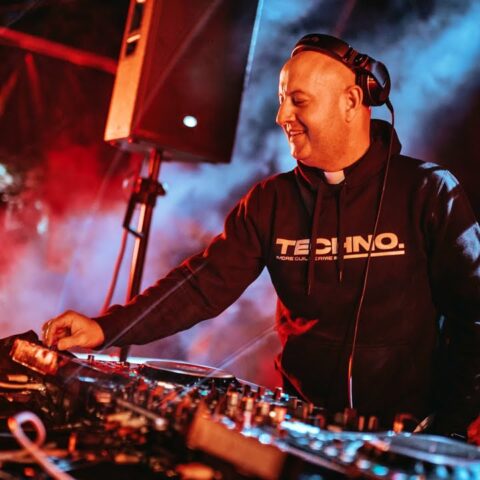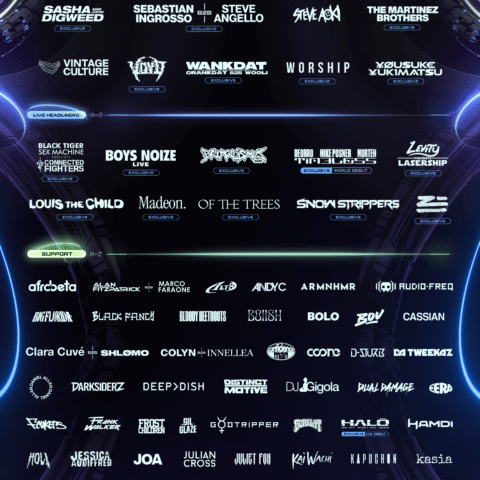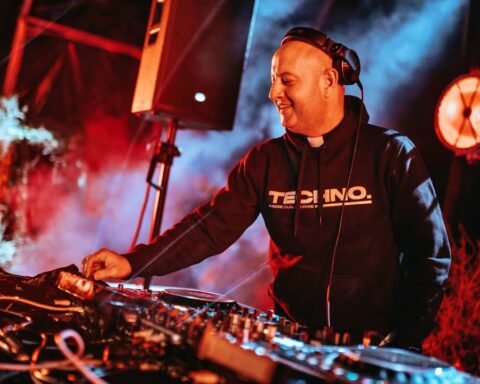
This project doesn’t seek applause. It listens to itself. Every track feels like an act of remembering — grief turned into harmony, faith disguised as melody, silence stretched into meaning. It’s not performance; it’s prayer.
Some albums don’t arrive — they remember you first. The Boy Who Played the Harp isn’t an album about sound; it’s an album about presence — about what lingers after the noise fades, about what happens when creation feels closer to confession. Every chord feels like a small act of survival, the kind that doesn’t demand applause, only understanding.
You can tell he didn’t make this to be consumed. It feels instead, like something he found, something that existed before him — a melody that waited patiently for a voice. The production carries that unhurried honesty: sparse percussion, open air, strings breathing beside words that seem too heavy to hold. There’s restraint here, a kind of spiritual economy that makes every silence meaningful.
A Boy, a Harp, and a World Too Loud
Dave’s The Boy Who Played the Harp doesn’t unfold like a record — it breathes like a confession. Across its length, there’s a strange, magnetic quiet: the kind that sits at the edge of grief, wisdom, and the stubborn need to still believe in something. You don’t just listen; you overhear a person learning to feel again. The album hums with contradictions — sacred and secular, rage and grace, memory and forgetting. Dave writes like someone who knows that survival isn’t loud. It’s slow, almost ceremonial. Each song feels like a page torn from a diary, still wet with prayer and disappointment. The harp — a symbol, a metaphor, a mirror — becomes his way of speaking to the unsayable.
There’s beauty in how he refuses spectacle. Where most albums chase rhythm, The Boy Who Played the Harp lingers in pauses — in the breaths between truth and confession. He builds a language out of ache and stillness, turning trauma into tonality. You hear the ghost of a church hymn beside the pulse of a London night, the echo of boyhood beside the weight of fame, the tenderness of reflection against the chill of the world’s noise.
This is not an album of answers. It’s a gathering of moments — of songs that feel like folded letters to the self. A document of memory, loss, and grace.
History
The project begins with History, where he doesn’t rap as much as he unravels. It’s not nostalgia — it’s confrontation. The tone is heavy but intimate, like reading someone’s diary out loud. You can hear him making peace with the ghosts that shaped him, the city that never really sleeps, and the quiet ache of wanting to be more than just a story. There’s a soft ache in his voice, something between lament and liberation. “I remember the noise, not the faces,” he murmurs, and the line hangs — unpolished, human, painfully true.
The instrumentation is skeletal — brushed drums, faint hums, the sense of someone pacing behind the mic. But what stands out is how he allows the imperfection to stay. It’s a refusal to romanticize the past; instead, he holds it gently, as though memory itself is fragile. History feels like an introduction to the album’s larger question: What do we inherit when the world quiets down?
175 Months
If History remembers, 175 Months counts. It’s the sound of someone learning how to age without hardening. Every line lands with the patience of a man who has been both teacher and student to his own pain. The title alone feels clinical, but beneath it lies tenderness — a measured grief, the kind that has learned to live with its mathematics. He uses months the way others use scars, as a way to measure distance from pain.
There’s something almost devotional about the structure — minimalist, repetitive, the voice folding into itself like breath during prayer. At the heart of it, this song is about time as a body — elastic, uneven, still aching. The line “I outlived the boy I was promised to be” lingers like a confession — not sad, just aware. This is one of those moments in the album where vulnerability and discipline coexist: emotion kept on a leash, but still trembling to break free.
No Weapons
Some songs heal not by soothing, but by confronting. No Weapons is that storm — steady, unflinching. There’s a calm defiance here, the kind that doesn’t need noise to prove strength. It’s not a protest song, not exactly, but it carries the residue of resistance. The refrain — “I lay my arms where love can see” — feels like both surrender and survival. The production glows beneath his words, like light through smoke. He doesn’t glorify resilience; he questions it. What happens when survival stops being a badge and starts being a burden? It’s a question that hums through the album’s spine.
The soundscape is rough-edged: metallic echoes, reverb that swells like air in a closed space. It’s a song that feels built for night — not to sleep through it, but to listen to the hum inside it. Somewhere between gospel and ambient experiment, it reminds you that peace isn’t the absence of struggle; it’s the courage to keep your hands open.
Raindance
Raindance arrives like a moment of reprieve — drenched in melancholy and mercy. It’s one of those tracks that feels like memory returning as weather. You can almost see him walking through the London rain, not trying to escape it but to baptize himself in it. There’s something spiritual about the way he lets sound and silence dance together here. It’s prayer without the pretense — a man talking to the world, hoping it still listens.
When he sings, “I danced so the clouds would remember me,” it feels ancient, yet new — a small myth remade in digital flesh. The production blooms here: small percussion ticks, soft bass, the shimmer of something that sounds like healing. Raindance captures what this entire work does best — turning ordinary emotion into sacred performance. It’s the sound of cleansing, but also the realization that cleansing means facing what stains first.
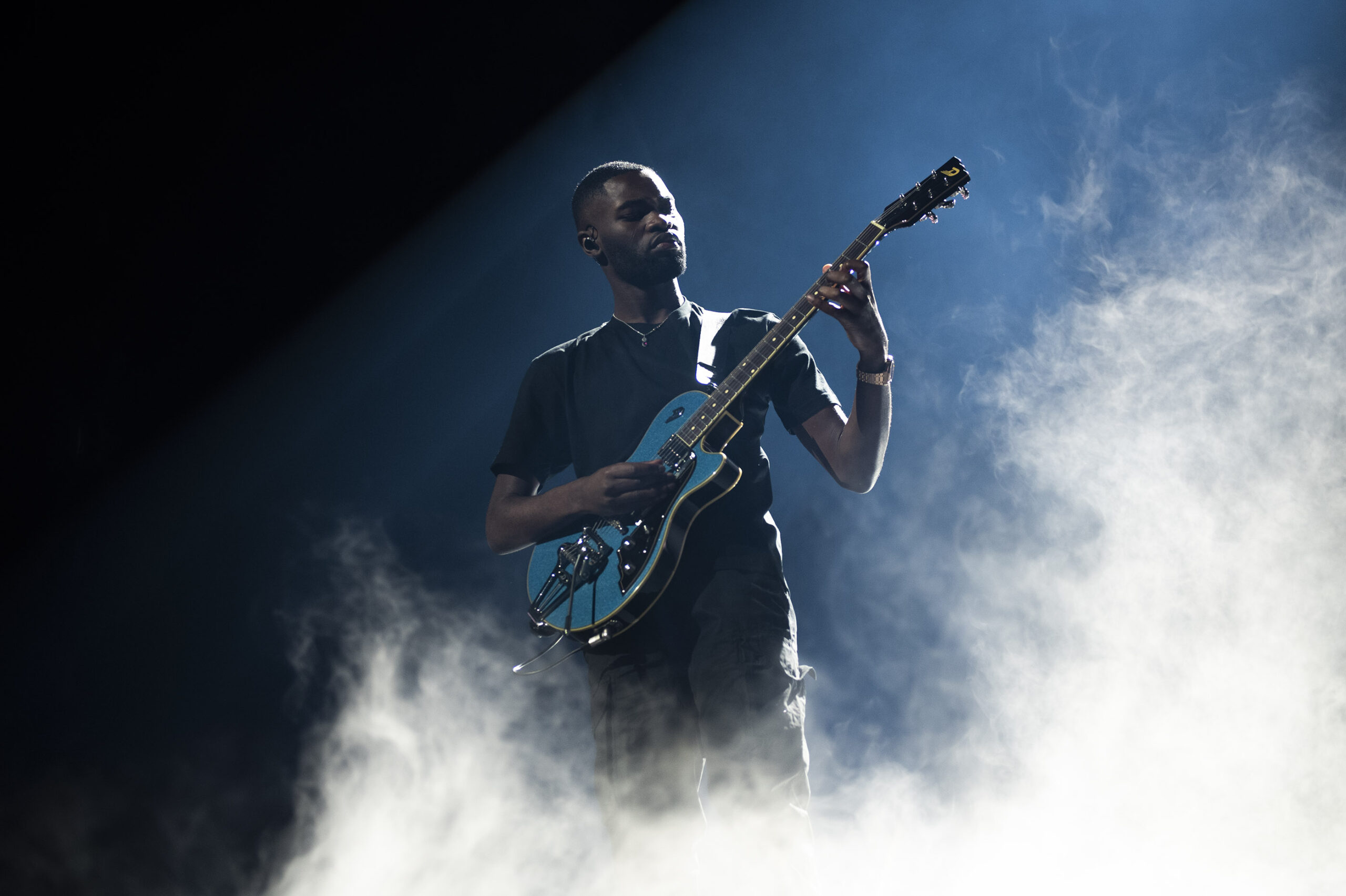
My 27th Birthday
In My 27th Birthday, the record opens into light. You can feel the weight of reflection — that soft wisdom that comes from realizing time doesn’t heal, it teaches. He sounds older here, but not distant. It’s the sound of a man who’s finally learned to breathe through his own questions. It’s not a celebration — more like a confession said into morning light. He sings, “I made it, but I don’t know who I’m thanking,” and the line cuts with startling intimacy.
The arrangement is sparse: soft keys, barely-there strings, breaths left audible between lines. It feels like the sound of someone testing if joy is still possible.
And maybe that’s the album’s most powerful moment — not triumph, but permission. It’s the sound of life continuing after you stopped asking it to.
The Boy Who Played the Harp
The Boy Who Played the Harp closes the circle. The soundscape opens like a sky after storm — gentle strings, a hush, and his voice, raw and deliberate. It doesn’t play like a finale; it feels like a doorway. A boy sits with an old instrument and lets silence do the heavy lifting. Every note feels touched by something older — not nostalgia, but knowledge. When he sings, “If I stay quiet, will the world still hum?” it’s less a question, more a benediction. You can hear him searching through sound for proof that softness still survives in the world. And maybe that’s what this album really is — a quiet argument against forgetting.
The harp becomes metaphor, memory, mirror — an object through which he relearns tenderness. The boy isn’t just him; it’s all of us trying to stay human in a culture too loud to hear itself breathe.
When it ends, there’s silence — the kind that doesn’t demand applause. You sit there, a little undone, realizing that maybe you’ve just listened to a man relearn how to be gentle with himself.
What This Album Really Teaches
Dave has always been a storyteller. But here, he becomes something rarer — a listener. And in that stillness, The Boy Who Played the Harp becomes what so few albums dare to be: not a performance, but a place. The album is what happens when music stops being product and becomes memory. It’s not nostalgia — it’s inheritance. It carries the same truth found in Igbo storytelling: that the past never leaves; it merely changes language. This project speaks in that language — rhythm as remembrance, silence as survival. The artist becomes a kind of custodian, gathering what the world forgot — the tenderness, the pauses, the sound of breath between songs. And in doing so, he gives us a gift: a way to feel again, slowly.
Before the Echo Fades
Across its ten tracks, The Boy Who Played the Harp never chases grandeur; it just asks for presence. The artist isn’t preaching or performing; he’s archiving — turning grief, faith, and time into small, luminous gestures. So, don’t stream like it’s another sad-boy experiment. Enter it slowly.
Let History open the room — bare, unvarnished — the kind of song that feels like peeling back wallpaper in an old house just to touch what’s underneath. When 175 Months starts counting, don’t follow the rhythm; follow the ache. By Raindance, you’ll notice your breathing syncing with the song’s small storms, your thoughts loosening where the percussion lingers. And when The Boy Who Played the Harp finally arrives, don’t just listen — kneel. Because this isn’t background music. It’s a quiet return to self.
So listen. Not with your ears — with the parts of you that still ache, still dream, still remember the sound of rain on zinc.
Then tell us —
Which song from the album still follows you after silence? Comment your memory. Let’s build the echo together.





